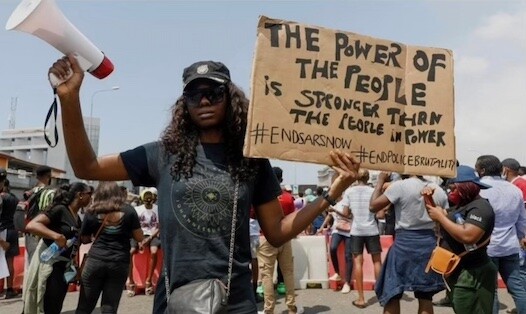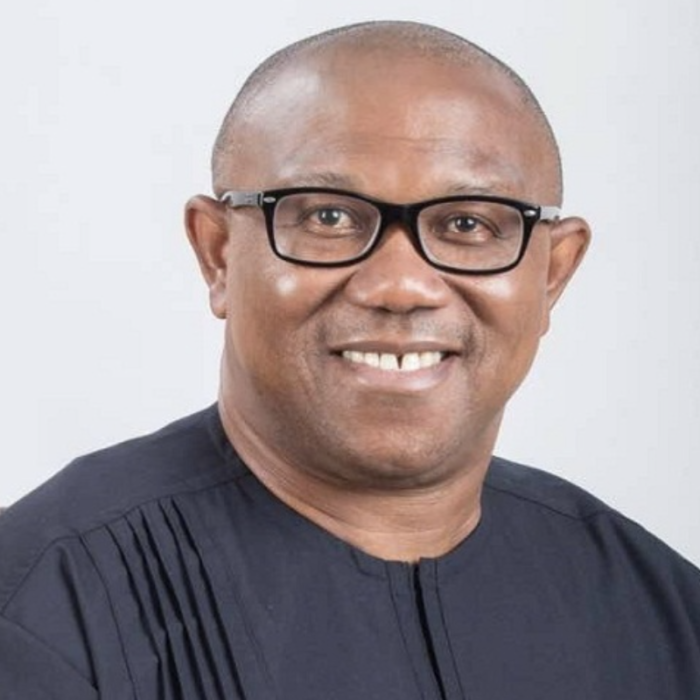“Those who make peaceful evolution impossible make violent revolution inevitable.”
— John F. Kennedy
By Nnaoke Ufere, PhD
What sparks a revolution?
Nigeria today is on the brink of a potential revolutionary upheaval, driven by a combination of key factors that have converged to create a volatile situation.
First and foremost, profound economic inequality and widespread suffering are playing a pivotal role in fueling discontent among the population.
Secondly, a prevailing perception that the ruling classes prioritize their own interests over the well-being of the majority has eroded faith in the government’s ability to address these disparities effectively.
Thirdly, as a response to these grievances, alternative political ideologies are gaining traction, even those that were previously considered marginal.
Finally, the ruling class is actively suppressing the votes of the masses who support alternative political ideologies, depriving the people of their democratic right to freely choose their leaders for the purpose of seeking change and liberation from the tyranny of those currently in power.
With such a climate of frustration and disillusionment, any spark could ignite a political explosion, as history has shown in various instances of significant events that led to revolutions or uprisings.
The French Revolution in 1788, triggered by severe famine, and the American Revolution in 1775, driven by dehumanization, serve as prime examples of how social crises can lay the groundwork for transformation.
Similarly, in more recent times, political corruption reached a tipping point in Indonesia in 1998, fueling the Indonesian Revolution, while the oppression faced by the masses in the Philippines led to the People Power Revolution in 1986.
Even a seemingly small incident, like the anger of a fishmonger towards corrupt politicians and the police during the Arab Spring, became a catalyst for change.
These historical episodes underscore how societal grievances and crises can culminate in significant movements that reshape nations and their destinies.
The Gathering Storm
Currently, Nigeria appears to be experiencing the perfect storm of social, economic, and political factors, making the conditions ripe for a potential revolution.
The people might have finally reached their breaking point and feel an urgent need to reclaim their country and shape their own destiny.
Presently, Nigeria is witnessing extraordinary scenes as waves of discontent sweep across the nation. From Aba to Zaria, impassioned and frustrated crowds of young people are taking to the streets and using social media and public spaces to demand change.
The root cause of this popular dissent lies in the severe consequences of man-made economic hardships, encompassing soaring unemployment rates, rampant inflation, pervasive corruption, widespread famine, and the burden of disease.
The impact of these issues is devastating, with over 135 million Nigerians living in poverty, and the majority struggling to afford even the most basic necessities of life.
Adding to the plight, the policies implemented by the Tinubu administration have exacerbated the situation, leading to record levels of self-inflicted inflation.
As a result, many people find themselves unable to purchase essential goods, work, or provide education for their children. Food scarcity and shortages have worsened, forcing families to resort to extreme measures to survive.
The rising costs of university fees, fuel, transportation, medicines and rent have inflicted immense hardship upon millions. For the poorest, the steep increase in the price of a 50kg bag of rice from N24,500 to over N35,000 is particularly harsh.
The sudden removal of fuel subsidies and manipulation of the exchange rate regime have further intensified the suffering.
This dire situation has left Nigerians feeling trapped in an unending cycle of hardship, leading to a deepening sense of despair. The policies implemented have created a “poor people’s recession,” wherein only the wealthy can afford basic necessities.
Adding to the disillusionment is the belief among many that their votes for Peter Obi were stolen, shattering their hopes for liberation. The lack of faith in the fairness and impartiality of the courts concerning the presidential election outcome only adds to the growing sense of injustice.
The convergence of these triggers has resulted in a widespread feeling of inequality, with a prevailing conviction that the current system primarily favors a privileged few while neglecting the vast majority of suffering Nigerians. Consequently, the ruling regime’s legitimacy has significantly weakened in the eyes of millions.
Throughout history, modern revolutions have often emerged when a government’s mismanagement coincides with a severe decline in the well-being of its citizens.
Nigeria is now dangerously close to this tipping point, as the dissatisfaction and frustration among its long-suffering citizens grow, feeling disregarded by an obstinate ruling class.
The Nigerian elites seem oblivious to the harsh lessons of history. They fail to recognize that despair can fuel revolution, and in such times, the collective weight of the masses can overpower the wealthy elites.
From the French Revolution to the Indonesian Revolution, history is replete with instances of mass uprisings and radical shifts in societal structures and social order.
Nigeria, too, may be on the brink of echoing these historical patterns, as the political and economic elites have chosen to turn a blind eye to its lessons.
Within their isolated enclaves like Banana Island in Lagos, Asokoro, and Maitama in Abuja, the wealthy elites dismiss wealth disparity and mass suffering as insignificant and “out there.”
They even go to the extent of attributing poverty to the supposed shortcomings of the poor, such as laziness or lack of productivity. With such misguided rationale, they perpetuate and normalize the oppression of the majority by a powerful minority.
Raise Your Voices Loud and Clear
Meanwhile, ordinary Nigerians must abandon the notion of weakness and helplessness. We should no longer rely on the belief that things will magically resolve themselves or improve through divine intervention.
The despair we face in Nigeria is not the result of some divine plan, it was not the wish of God as some corrupt pastors would want us to believe, but rather the consequence of human actions.
Nigerians must no longer rely on the expectation that God will intervene and address the corruption and wickedness perpetrated by politicians and government bureaucrats.
Many of the pastors who encourage such passivity are, in fact, complicit with the oppressors, perpetuating false hope for a salvation that may never come.
True change will not come from hoping for salvation on earth or in heaven but rather from our collective efforts coupled with the guidance of God.
Let us not wait passively; instead, we must come together, unified as fellow citizens. In this grand collective endeavor, tribal affiliations like Igbo, Hausa, Fulani, Yoruba, Tiv, Ibibio, Izon or any other should hold no sway. Nor should our religious differences.
We are all patriotic Nigerians, bound by our love for our country and our shared destiny.
United as One Nigeria, let us rise to support the vulnerable, stand against oppression, and defend our nation. Together, we shall take action through peaceful protests and civil disobedience, when needed, to bring about the change we desire.
As the wise words of Edmund Burke in his 1770 “Thoughts on the Cause of the Present Discontents” remind us, when evil people join forces, the good must also unite, or else they will fall one by one in a contemptible struggle.
You may be familiar with another quote often attributed to Burke: “The only thing necessary for the triumph of evil is for good men to do nothing.”
Let us not allow this moment in history to be another instance where good people did too little to confront wickedness and disaster.
We must heed the warning of the imminence of a potentially bloody revolution in Nigeria if we fail to urgently remedy the horrendous conditions in our nation in a peaceful way.
History has shown that revolutions can be deadly, and their costs are felt for many generations to come. The French Revolution claimed the lives of a million people, which was one in twenty of the French population at the time. The death toll of the Russian and Chinese revolutions was even higher, with one in ten.
By raising our voices today, we have the chance to avert a potentially bloody revolution tomorrow. Let us act now to bring about the change we desire and create a better future for all Nigerians.



